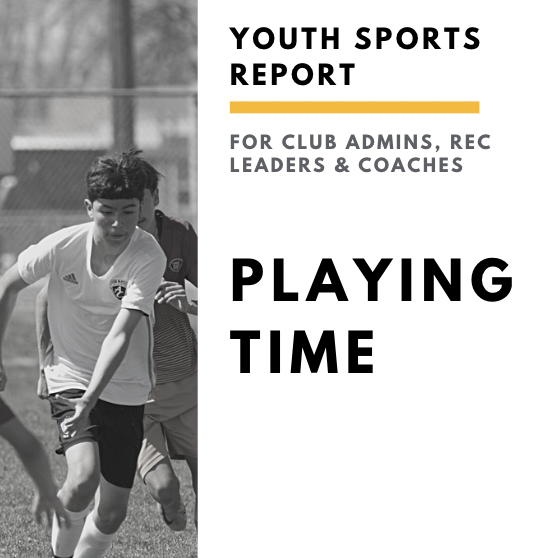Get our exclusive report. Download the iSport360 Club Switching Report Here – For Club Admins, Rec Leaders and Coaches.
Tough Teams Need Effective Communication
Sports teams are like families, bound together by a shared passion and common goals. However, just like any family, teams face challenging times that test the strength of their bond. Coaching 20 teen girls, I once said to them that they are sisters. Some days you love each other, some days you don’t.
Effective communication is the linchpin that holds a team together during these moments. It is important to have effective communication strategies on how to speak to your teammates in challenging times to foster unity, resilience, and a path forward.
Open Dialogue:
The foundation of effective communication lies in open dialogue. Create an environment where teammates feel comfortable expressing their thoughts and emotions without fear of judgment. Encourage honesty and transparency, as these qualities lay the groundwork for understanding and support. When facing challenges, initiate conversations to discuss concerns, share perspectives, and collectively explore potential solutions.
Sometimes it can be hard to have open dialogue; make sure you write down notes and even role-play how you would have a tough conversation.
Active Listening:
Communication is a two-way street, and active listening is a crucial component. When a teammate is expressing their feelings or concerns, listen attentively without interrupting. Show empathy by acknowledging their emotions and validating their experiences. By actively listening, you demonstrate respect and strengthen the bonds of trust within the team. And it is always okay to think before you speak. Don’t be afraid to listen and absorb information – even if there is silence in the room.
Choose the Right Time and Place:
Timing is everything, especially when addressing sensitive issues. Choose an appropriate time and place for team discussions, ensuring that everyone can focus without distractions. Avoid confronting teammates in the heat of the moment or during high-pressure situations, as this may escalate tensions. Instead, opt for a calm and private setting where open communication can thrive.
Use “I” Statements:
When discussing challenges, frame your thoughts using “I” statements to avoid sounding accusatory. For example, say “I feel concerned about our recent performance” rather than “You’re not putting in enough effort.” This approach fosters a non-confrontational atmosphere, making it easier for teammates to engage in constructive dialogue without feeling defensive. This is my favorite way to speak when things can be confrontational. It is really useful in all environments.
Team-Building Activities:
In challenging times, team-building activities can serve as a catalyst for improved communication. Engage in activities that promote trust, collaboration, and unity. These activities can range from team dinners to off-field events, creating an environment where teammates can connect on a personal level. Strengthening interpersonal relationships often leads to more open and effective communication during challenging periods. Any time that you are with your teammates in an environment that fosters fun, it will create a bond. You get to see your teammates as different people outside of the sport you play.
Constructive Feedback:
During tough times, constructive feedback becomes paramount. When providing feedback, focus on specific actions or behaviors rather than making personal attacks. Be solution-oriented by offering suggestions for improvement and emphasizing the team’s collective commitment to overcoming challenges. Constructive feedback fosters a growth mindset, encouraging continuous improvement.
Leadership by Example:
Team leaders play a pivotal role in guiding communication during challenging times. Lead by example, demonstrating the values of openness, resilience, and a positive attitude. Teammates often look to their leaders for cues on how to navigate difficulties, so showcasing a proactive and solution-focused approach sets the tone for the entire team. Don’t be afraid to speak to your team leaders.
Navigating challenging times as a sports team requires a commitment to effective communication. By fostering open dialogue, practicing active listening, choosing the right time and place for discussions, using “I” statements, engaging in team-building activities, encouraging mutual support, providing constructive feedback, and demonstrating leadership by example, teams can weather storms and emerge stronger than ever. Remember, communication is the thread that weaves the fabric of a resilient and unified team.
iSport360 is the only app that does it all for youth sports. For more information on what we do, click here.
About the author:
Amy Masters is a sports mom, coach, and club administrator. She has been coaching youth sports for more than 10 years. She started Jr Lions Field Hockey, the youth recreation program for the Hunterdon County community growing it from 40 players in year 1 to 150 players by year 3. A few years later, she saw the love and competitiveness grow then started Omega Field Hockey Club serving NJ and PA players. Prior to coaching, she was a collegiate field hockey player for Lock Haven University. In her spare time (lol), she is head of marketing for iSport360, where she brings her love of sports to a bigger audience.
Learn more or request a demo of our youth sports software that is helping teams improve communication, organization and player development.
December 11, 2023





